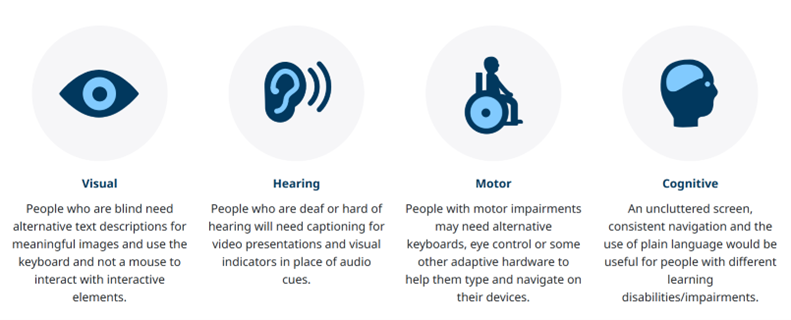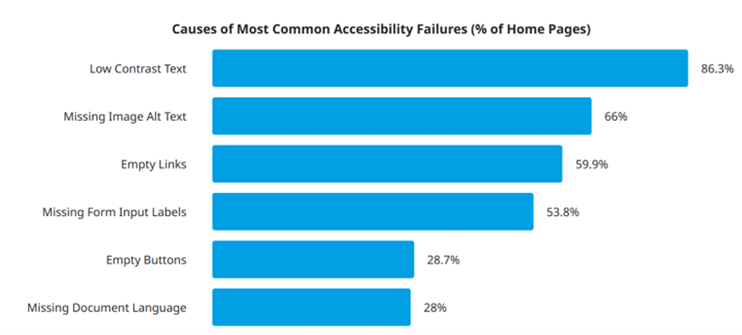Global Accessibility Awareness Day 18th May 2023
Monday, 15 May 2023
Established in 2012, Global Accessibility Awareness Day (GAAD) focuses on digital access and inclusion for people who live with disabilities or impairments and is marked on the 3rd Thursday of May each year. The goal is to get everyone talking, thinking, and learning about digital access and inclusion and the more than one billion people with disabilities/impairments. Someone with a disability must be able to experience web-based services, content, and other digital products with the same successful outcome as those without disabilities (GAAD accessibility.day).
The Equality Act 2010 defines a person as ‘disabled’ if they have a physical or mental impairment which has a substantial and long-term adverse effect on their ability to carry out normal day-to-day activities. In the UK, around seven million people of working age with a disability or long-term health condition, yet only about half of them are in work (Disability & Employment | Factsheets | CIPD). There are many types of impairment, and the impact varies in terms of digital access and inclusion such as:

In 2020, WebAIM analysed one million home pages for accessibility issues and reported the following:

GAAD has a really useful resources page with recommended accessibility features, assistive technology, tools, and learning resources such as Adaptech Research Network (which has a library of free or inexpensive software) and Microsoft Accessibility Resources & Training (to create accessible content, products and experiences that are inclusive for people with disabilities). There are a number of free/open source screen readers available for Windows users, including:
· NonVisual Desktop Access (Windows + Linux)
· Apple Accessibility (all platforms)
Each business needs to ensure the organisation and the services they provide are accessible to disabled people as well as everybody else. Such alterations are known as reasonable adjustments and can apply to the physical building as well as policies, procedures, and training. The aim of a reasonable adjustment is to allow a person with a disability to carry out their work in a way that does not put them at a disadvantage with their colleagues.

Ways to create an accessible and inclusive workplace:
Create an accessible work environment – make reasonable adjustments such as wheelchair ramps/lifts, quiet rooms for noise sensitivity, Braille signage, adaptive desks/chairs and invest in those Accessibility Features and Assistive Technology (as above).
Join the Recruitment Industry Disability Initiative (RIDI) – an initiative to create disability confident employers by raising awareness and removing barriers to reduce the disability employment gap. You can use their resources and Disability Inclusion Calculator to calculate your disability employment gap (https://ridi.org.uk).
Sign up to the Disability Confident Scheme and display the badge on adverts – this scheme was developed by employers and disabled people’s representatives to provide guidance, good practice and resources to help employers recruit from the widest possible pool of talent and demonstrate how all employees are treated fairly (Disability Confident - dwp.gov.uk).

Review recruitment methods – advertise jobs on websites designed for disabled people and make the adverts accessible, e.g. use text that a screen reader can understand. Offer documents in a more accessible format i.e. candidate briefs. Guarantee disabled people an interview if they meet the minimum criteria and publicise this in the advert with the two ticks symbol.
Provide training – ensure all employees understand the importance of accessibility and support line managers to navigate conversations with employees and implement reasonable adjustments. CIPD and the Department for Work and Pensions Disability Confident Scheme published a practical guide (Disability Confident and CIPD: guide for line managers - GOV.UK).
Acas advice hub – ensure employees with disabilities get the best support at work by accessing guidance and expertise (Disability at work | Acas).
Lizzy Turek
Client Research Associate


